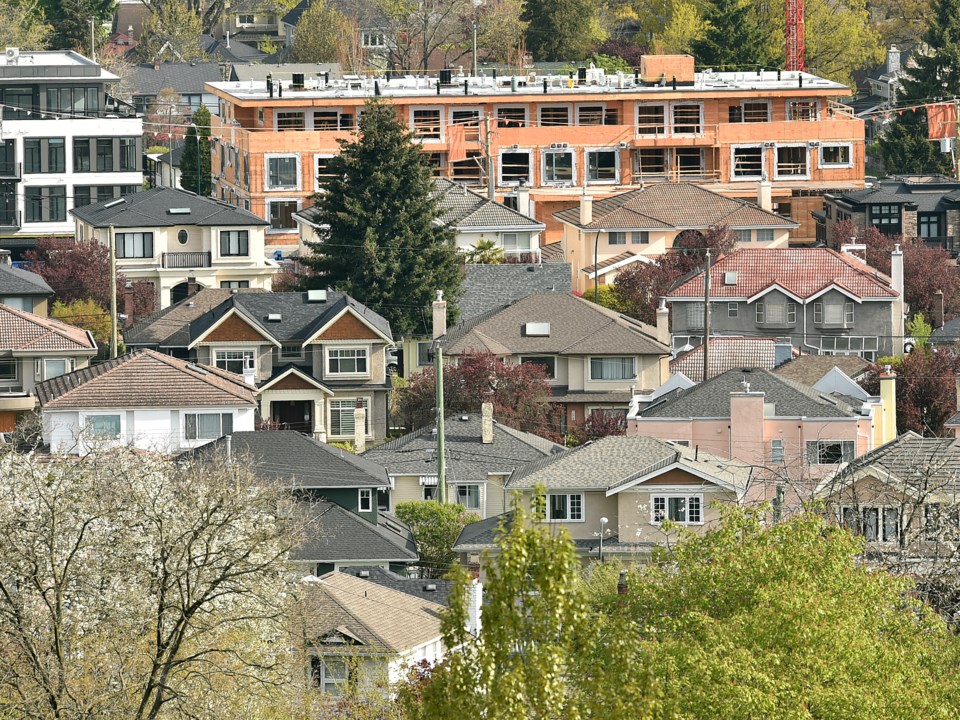My goodness. Where did the year go?
In 2019, I wrote 26 columns in the Courier. Seven addressed and community planning, with an emphasis on increasing the supply and affordability of rental suites.
Six deplored Vancouver’s and offered suggestions on improving living conditions in the Downtown Eastside.
Three columns questioned whether new city and provincial taxes would , and another three examined the deteriorating condition of city streets, parkades, and our
Two columns focused on what I expect to become a major topic next year, namely the negative effects of pollution and urban noise on our health. They looked at how along busy roads has reduced the negative effects of pollution.
Following the tragic burning of my column looked at the broader topic of heritage restoration.
After federal rebates were announced for , my column explored the benefits and challenges of owning one.
Another column reported on unique brand of real estate advice and life philosophy.
In , I wrote that I did not expect any significant increase in house prices, especially for single-family properties. Nor was I expecting a major crash in prices.
that while the so-called speculation, empty home and new school taxes would cost some homeowners more, housing affordability would remain a serious problem for Â鶹´«Ã½Ó³»buyers and renters. Sadly, I was right.
While these taxes generated government revenues, and encouraged some single-family homeowners to rent their properties, we did not see 10,000 to 25,000 empty homes return to the rental market as politicians promised.
Ironically, many owners of second homes sold their condos and started renting. The result was the exact opposite of what was intended.
Over the years, I often shared urban planning lessons gleaned from cities around the world. This year I wrote from a city in where gas-powered motorcycles and scooters had been banned. Instead residents got around on electric scooters without the noise and fumes experienced in most Asian cities.
Several columns looked at . While I supported an increased supply of rental housing, I questioned the appropriateness of spot-rezonings, including one next to a hospice, in the absence of overall neighbourhood plans.
I also questioned some of the city’s ridiculous requirements such as demanding an arborist’s report on trees within the front boulevard of a house, when the applicant was building a laneway house in the back.
In the spring, I hoped a column about the sorry state of urine-soaked and downtown streets would prompt a discussion about the need for more public toilets around the city, especially in locations frequented by the homeless.
A subsequent column, complaining about graffiti covered buildings and structures, attracted considerable media attention and a response from a Courier reader who, at his own expense, had beautified along the Arbutus Corridor.
Several columns expressed concern about the increasing number of camping out on major city streets, both during the day and evening.
They generated considerable criticism from those who questioned where I thought the homeless should go. In response, less expensive relocatable modular housing like that found in northern work camps, offering small sleeping units, with and without private bathrooms.
In several columns, I urged government officials and community activists to adopt a more to addressing homelessness.
This would include increased addiction treatment and employment programs such as EMBERS Eastside Works, as well as family reunification programs and personal grooming and dental care.
We must also try to prevent future generations from becoming homeless by supporting programs such as KidCare Canada, which educates new parents, especially those from disadvantaged backgrounds, on how to take care of their babies.
In , I suggested institutional care is needed for some people suffering with mental illnessÌýwho don’t belong on the streets and need more than just housing.
While none of my 2019 columns likely solved any of the many problems facing our city, hopefully each contributed in some small way towards a broader discussion of possible solutions.
Thank you for taking the time to read them. Happy holidays.
Ìý
Ìý
Ìý
Ìý
Ìý
Ìý
Ìý
Ìý
Ìý
Ìý



